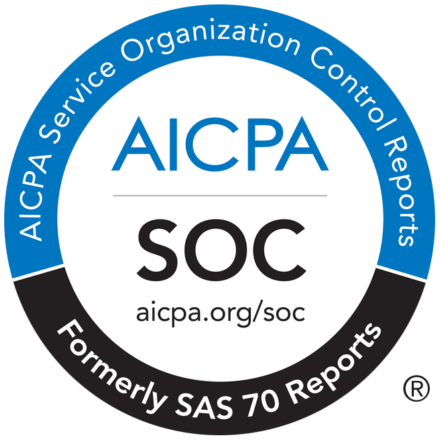The writers and researchers nowadays prefer to use the online mode of publication, gaining popularity with time. It is less expensive, and the writers can reach many readers within a short time.
With the popularity of online publication, the tendency of plagiarism has also increased. Many researchers submit their plagiarized content without checking, but it can have a long-lasting effect on their careers.
The readers can quickly identify the plagiarized content using the online plagiarism detector applications. If a writer or researcher is once flagged for plagiarism, then he/she loses their trust-worthiness.
As a result, they may have difficulty publishing their works in the future. Therefore, researchers need to use a thesis checker tool before posting their work.
What Is Plagiarism in Thesis?
Plagiarism means stealing someone else’s writing and passing it off without crediting the original author or the source. The researcher may feel the need to use part of a journal or another writer’s work to strengthen their argument.
For that, they need to use quotation marks and do a proper citation. If the researchers fail to use the quotations properly or misquote or fail to do a proper citation, the work may get tagged as plagiarized content.
There are some common types of plagiarism seen in the thesis. Though plagiarism in a thesis can be intentional or unintentional, in both cases, the allegations of plagiarism can affect the researcher’s career. Therefore, the researchers must use an online paper to check for plagiarism.
Common Types of Plagiarism Seen in Thesis Papers
There are a few common types of plagiarism that can be seen in the research papers. The researchers need to have a clear idea about plagiarism to avoid producing plagiarized content:
1. Direct Plagiarism: It may happen that the researchers have copied and pasted the entire content from a journal or pre-existing work getting misguided by the conception that copying from pre-existing works can help them to receive a better grade and impress the readers. It is called direct plagiarism.
2. Mosaic Plagiarism: The researchers often use the part of their reference works in their thesis, and to avoid the citation, they change parts of it with their own words or synonymous phrases, and this is called mosaic plagiarism.
3. Paraphrasing: Paraphrasing is a commonly seen plagiarism mode. The researchers often paraphrase parts or whole content and pass it on as their own without doing any citation. It is also a sort of plagiarism.
4. Unintentional Plagiarism: It may happen that the researchers have used parts of another work within their content but have misquoted the part or have done a wrong citation. It may happen that they have forgotten to use the quotation marks. All this can be instances of unintentional plagiarism.
Whether intentional or unintentional, all sorts of plagiarism allegations impact the life of the researcher negatively. They can use a student plagiarism checker to stay away from producing duplicate content.
Consequences of Having a Plagiarized Thesis Paper
The researcher may have to face several consequences for having plagiarized content.
The students who are interested in higher studies and pursue research careers must value their thesis. The thesis papers reflect their academic talent and thought process. Therefore they need to generate a thesis paper that does not have any copied content.
If the students/ researchers submit their work with copied content, the professors can easily find it out using a university plagiarism checker. If a researcher gets identified for having plagiarized content, it may adversely affect the students’ career.
All the institutions have their stand against plagiarism, and they take actions based on their educational policies. The institution considers plagiarism as a threat to academic integrity.
In the future, this may severely affect the institute’s reputation, and they may end up losing international students. Their ranking can also suffer. For these reasons, the educational institutes can take strict actions against the researchers or students who have copied content in their work.
The institution may give the student a failing grade or repetitive complaints of Plagiarism. They can even rusticate a student. Suppose the researchers publish their thesis paper with plagiarized content that can directly affect their career.
The page publishing their work takes it down immediately after the readers claim it as plagiarized content. Thus, the researcher may lose all the future opportunities to publish their works in reputed journals or webpages. Therefore, the students need to use a thesis checker to avoid Plagiarism.
The original author can also take legal actions to claim their right to their works. Most countries have strict laws to protect the right of the writers or artists on their work. The author can seek legal aid against the unauthorized copying of their work in the published paper.
If proven, the researcher may have to undergo the sentence of imprisonment or monetary loss. It can affect their career as well.
How to Produce A Plagiarism-Free Thesis Paper?
The researchers who value their thesis and research papers must use a thesis checker to check or Plagiarism before publishing their works. While writing a thesis, it is essential to use their idea rather than any other material.
They need to keep track of their reference materials to use quotations and do proper citations for their parts to substantiate their points.
The students need to use grammar and spell checkers to determine any grammar mistakes or spelling errors in the sentence.
The spell checker identifies the wrong spellings present in the work so that the students can correct it. For the plagiarism checker to work accurately, the paper needs to be error-free.
The researcher can upload their work on any thesis checker tool. The academic plagiarism checkers run a plagiarism test by scanning the document.
They also compare it against the other pre-existing works and then generate a plagiarism report with percentage. The researchers can work on those copied parts to produce a plagiarism-free thesis paper.

